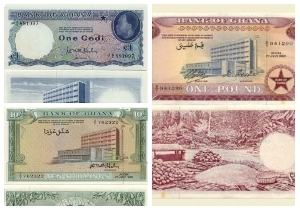This Xmas season more Ghanaians will consume their locally produced rice; at least for once.
Wait! this is not a prophesy. It is a reality. Call it radio get results or the power of media, more Ghanaians will eat or at least dare to “Taste and see that Ghana rice is good”. How fascinating!
Within the last few weeks of the Buy-Made-in-Ghana rice campaign started by Citi FM/Citi TV, I have been amazed at the different kinds of local rice brands that exist in this country even compared to the foreign brands.
The vivid description of the aroma, taste and feel of Ghana rice by individuals across traditional and the social media space have been poignant and crazy enough. And if the local rice gospel evangelists on the Citi CBS with all the facts, figures, further and better particulars, have not gotten you converted, I am afraid you simply “have hardened your heart”.
If you have not caught the fever of the Ghana rice campaign by now, you are either a stranger yet to jump on the Year of Return train or simply the bad guy in the story. Man! You are not trendy.
Only this week, the Ghana Rice Millers Association has been reported as saying it is ready to flood the market with Ghana Rice brands this festive season.
Their assurance comes after the association secured a deal with some banks (including GCB Bank, NIB, Barclays and ADB Bank) to provide funds for the millers at an affordable rate. I have no doubt that early next year we should see the dividends of our collective efforts and hear some exciting statistics on rice consumption and the bumper harvest/sales by our gallant rice farmers.
As a journalist and an observer of the media landscape, three key things stand out for me in this campaign. First, the effect of media ownership/management. Secondly, the media economy. And thirdly, the issue of public interest/or the public good.
The mass media influence the way issues are viewed, debated and decided in society. Through its agenda setting capability, it is able to shape positively or negatively public opinion, attitudes and lifestyles.
The “Made-in Ghana Rice Campaign” is for me one of the finest developments in the mass media scene in Ghana in 2019. It is the result of a fact-based, well-researched and thought through campaign being sustained by the media to get Ghanaians to eat our locally made rice and by extension boosting the local economy.
Obviously, one of the best examples of the agenda setting ability of the media you can find. The element of “Media Framing” is also very pronounced; where the media has largely succeeded in focusing public attention on the key aspects of our local rice: the packaging, the feel, the aroma, and the taste, and the local economy.
There is no doubt such bold media initiatives are closely tied to passion and interests of the media owners and management. In a space where advertising is still a critical source of funding to media operations, it is only the bigger picture of the public good that can prompt and sustain such initiative that calls the bluff of advertisers to the point where some foreign rice brands withdrew and cancelled their advertisement with Citi FM/TV because of it.
The CEO of Citi TV/FM, Samuel Attah Mensah, clearly took a costly bold stance at the risk of revenue loss to rally the team and the whole nation around this initative.
Here again, is a demonstrable evidence that media ownership in Ghana cannot be just about partisan, parochial or propagandists’ agenda. But more importantly, the public interest and the public good as espoused in the media’s social contract.
Media firms compete and face rivalry all the time for the sale of content to consumers and for advertisers seeking the attention of these consumers among others. But what has been even more gratifying about the Made-in-Ghana Rice Campaign is the fact that many other media organisations like Multimedia, influential journalists, social media activists and influencers hooked on to it, taking it a notch higher and defying the unhealthy competition and rivalry that tend to douse or quench such bold initiatives.
Citi FM/TV, the champions of this noble campaign, and all the other media outlets that have and continue to champion this campaign, certainly deserve great commendations for this stride. This indeed reinforces the fact that the media are still the oxygen of a functioning democracy and accountable governance.
The argument that Ghana rice is expensive and unavailable is lame and defeatist. Today, many big super markets have caught the fever and are proudly displaying Ghana rice in their shops. And just in case you are still not sure where to go, turn to the Aviation Social Centre on December 14, 2019 and find assorted Ghana rice to suit your taste.
Don’t be the bad guy in the story! By all means, Eat Ghana rice this festive season or at least taste it. Merry Christmas.
By Abigail Larbi –Odei
Programme Manager
Media Foundation for West Africa
Opinions of Friday, 13 December 2019
Columnist: Abigail Larbi–Odei



















